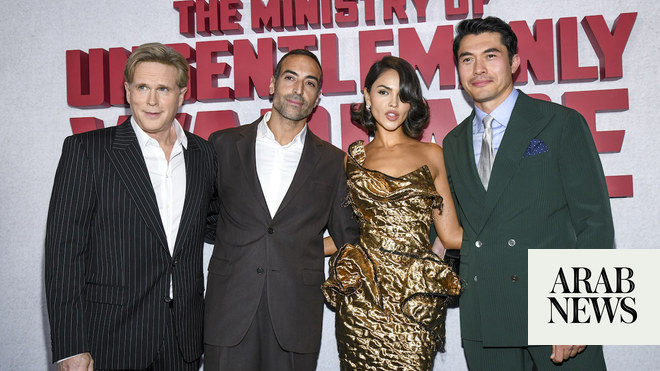
There are few figures in British film history as fascinating as Wendy Toye. Born in east London in 1917, she was a showbiz prodigy who first appeared on stage aged three at the Royal Albert Hall. Later, she was a dancer, choreographer and director working across stage and film, and responsible for some of British cinema’s most beguiling and chilling flights of fantasy – as well as some beloved comedies. All that a time when women were rarely entrusted with the director’s chair. “Then, I liked it to be forgotten that my films were made by a woman,” she said in 1990. “I think nowadays I’d feel quite differently.”
For a remarkably long stretch, Toye had the knack of meeting the right people at the right time and place. It helped that she had such a prodigious talent. She choreographed her first ballet at the Palladium, in London aged nine. She sat in on the rehearsals of Sergei Diaghilev’s Ballets Russes, and later joined the Markova-Dolin Ballet Company as a soloist and was taken under the wing of Dame Ninette de Valois. She soon became a prolific choreographer for the stage, achieving so much at such a young age that the dance critic Caryl Brahms was prompted to call her, among other accolades, the “Grand Young Grandmother of the dance routineers”.
Alongside directing for the stage, Toye was drawn into the movie business. She first appeared on film as a dancer in Anthony Asquith’s Dance, Pretty Lady (1931) and she started to work as a choreographer for cinema too, becoming increasingly fascinated by the workings of the soundstage. When she worked on the opera film Pagliacci in 1936, the director, Karl Grune, was so busy with the technical requirements of a colour sequence that he asked Toye to direct the actors for him. In her words: “then he put the cameras on it”. It was the quiet debut of Wendy Toye, film director.
It wasn’t just that Toye had an aptitude for film-making, but that her background in dance and comedy gave her a unique take on the craft. It was back in Diaghilev’s studio that she had first met Jean Cocteau, whose surrealism was a fruitful influence on her work, and who, in 1953, headed a jury that rewarded Toye with a Palme d’Or for her debut short film, The Stranger Left No Card.
Cocteau astutely described her sinister film puzzle as a masterpiece. This one-of-a-kind film is newly available on one of two new Blu-rays of Toye’s film work. It’s a “composed film” much like Powell and Pressburger’s Tales of Hoffman, or perhaps you could say a choreographed film, shot to fit a pre-recorded soundtrack using a metronome. A strange man arrives in a small town claiming to be Napoleon and his behaviour becomes more and more outrageously eccentric until his deadly secret is revealed. Picturegoer magazine praised Toye for directing the film “with such precision that it hits the bullseye of entertainment, bring[ing] new life to the featurette-type film”.
Toye’s particular talents assert themselves in the re-released and newly restored features on the discs. A thriller, The Teckman Mystery (1954), has a Hitchcockian climax at the Tower of London that can only be described as masterfully choreographed, and the maritime comedy We Joined The Navy (1962) abounds with artfully controlled slapstick and dance sequences – and reveals Toye to be an excellent lampooner of male pomposity. However, her short form work is by far her best. Do look out for her contribution to the portmanteau horror Three Cases of Murder (1955), in which a museum worker is drawn inside a gothic painting with grim results.
On the new discs you can enjoy her two collaborations with Ronald Searle, much jollier fare. Her festive short On the Twelfth Day … (1955) – the first of her two Searle collaborations – is an outlandish dance-fantasy, in which Toye stars as the young woman whose lover lavishes her with extravagant gifts. Sugary Edwardian nostalgia collapses into chaos as the young woman’s house is overrun with an abundance of birds, let alone lords a-leaping and drummers drumming. The King’s Breakfast, based on the AA Milne poem, was backed by the Butter Board but ended up premiering at Cannes. The quest for something to spread on a royal slice of bread becomes a half-hour banquet of uproarious slapstick, dance and mime, with pantomime sets and costumes.
Toye, who died in 2010, admitted that she wished she had made more films, but her taste for fantasy was a little out of step with the fashion of her era. Perhaps now the time is right to catch up with this whirlwind of a woman.
The Teckman Mystery/We Joined the Navy are released on digital platforms, DVD and Blu-ray on 21 November












